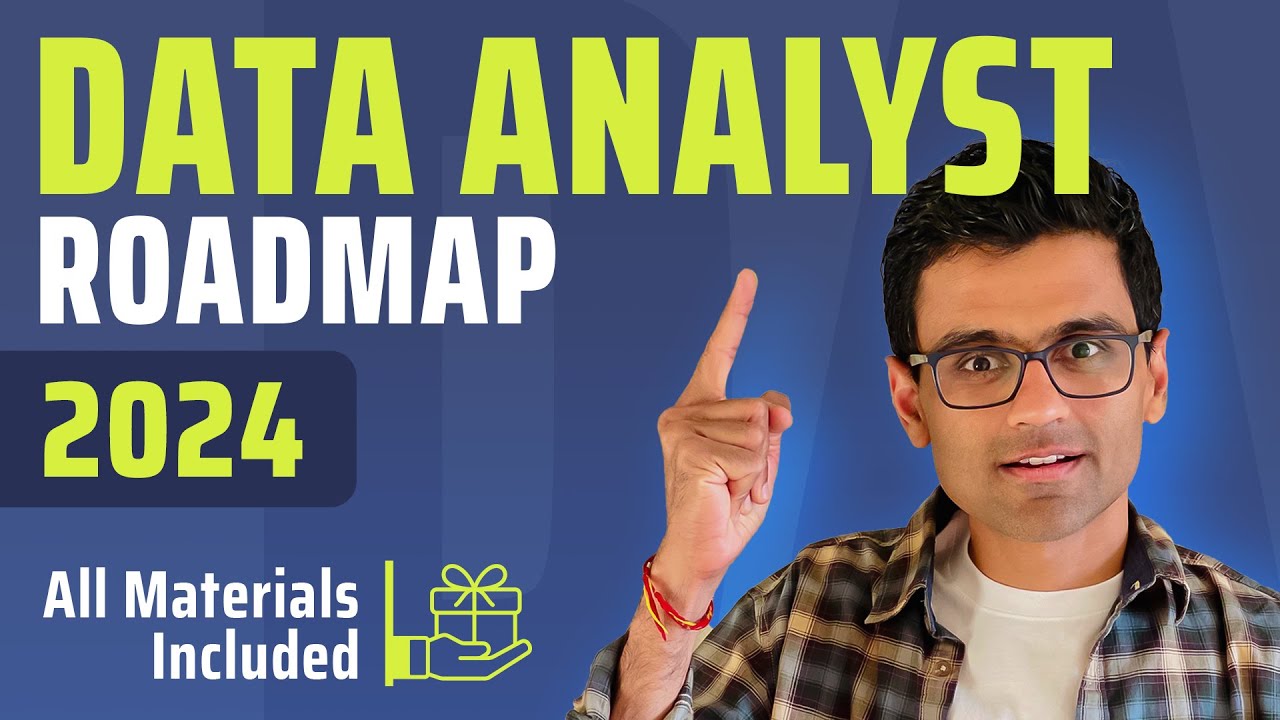AI Engineer Roadmap | How I'd Learn AI in 2024
Summary
TLDRThe video provides an 8-month roadmap to become an AI engineer, requiring 4 hours of dedicated daily study. It covers core computer science fundamentals, Python programming, data structures/algorithms, SQL databases, math/statistics, machine learning, deep learning, NLP/computer vision, and LLM/Langchain. Soft skills like building an online presence and ATS resume are also discussed. Tips are provided for effective learning through more implementation/sharing and less passive video watching.
Takeaways
- 😊 The video provides a detailed 8-month roadmap to become an AI engineer, requiring 4 hours of dedicated study per day
- 📈 AI engineer is currently the highest paying technical role, with very high demand
- 🧠 Strong coding and math skills are an absolute must to become an AI engineer
- 🐍 Learn Python basics, data structures, algorithms and advanced concepts like inheritance, generators etc
- 💻 Develop software engineering fundamentals like OS, networks, HTTP, databases etc if you don't have a CS degree
- 📊 Spend 1 month focused just on math and statistics - linear algebra, calculus, probability etc
- 🤖 Spend 1 month on machine learning models like regression, classification etc and MLOps concepts
- 🧠 Consider specializing in NLP or Computer Vision by spending weeks 28-30 focused on one of these
- 👩💻 Build projects, online presence on LinkedIn, portfolio and work on soft skills in parallel
- 🚀 Lifelong learning is key for AI. This roadmap sets a strong foundation to start an AI career
Q & A
What are the two key skills needed to become an AI engineer?
-The two key skills needed are strong coding skills and strong math skills. The video mentions that without skills in these two areas, you cannot become an AI engineer.
What is the recommended daily study time for the 8-month AI engineer roadmap?
-The recommended daily study time is 4 hours per day for the 8-month roadmap.
What Python concepts should be learned in weeks 3-4 of the roadmap?
-In weeks 3-4, you should focus on learning Python basics like variables, data types, conditional statements, loops, functions, classes etc. The video recommends going through the first 16 Python beginner tutorials.
What data structures and algorithms should be learned in weeks 5-6?
-In weeks 5-6, you should learn arrays, linked lists, stacks, queues, trees, graphs, sorting algorithms, search algorithms etc. The fundamentals of time and space complexity should also be understood.
What key soft skills are recommended to develop in parallel with technical skills?
-The key soft skills recommended are: building a strong LinkedIn profile, following AI influencers, commenting meaningfully on posts, developing presentation skills, learning business concepts, and mastering the art of asking questions.
What are some good resources for learning SQL in weeks 10-11?
-Some good free resources for learning SQL are: Khan Academy SQL course, W3Schools SQL tutorial, SQLBolt interactive platform, and MySQL tutorial playlist on YouTube.
What machine learning topics should be covered in weeks 18-21?
-The machine learning topics to cover are: data preprocessing, linear/logistic regression, decision trees, SVM, KNN, clustering algorithms, ensemble methods like random forests and gradient boosting machines.
What frameworks are used for building ML model APIs?
-Popular frameworks used for building ML model APIs are Flask and FastAPI. These allow you to wrap a trained model in a web service/API that can serve predictions.
What tips are provided for effective learning of AI skills?
-Tips include: spend more time implementing than just watching videos, learn concepts thoroughly before moving ahead, share your learning with friends, work on real projects, build an online presence.
What should be the next steps after completing the 8-month roadmap?
-After completing the roadmap, next steps are: work on more projects, build online credibility, apply for jobs/internships, continue lifelong learning as AI is a fast-evolving field.
Outlines

This section is available to paid users only. Please upgrade to access this part.
Upgrade NowMindmap

This section is available to paid users only. Please upgrade to access this part.
Upgrade NowKeywords

This section is available to paid users only. Please upgrade to access this part.
Upgrade NowHighlights

This section is available to paid users only. Please upgrade to access this part.
Upgrade NowTranscripts

This section is available to paid users only. Please upgrade to access this part.
Upgrade NowBrowse More Related Video

Data Analyst Roadmap 2024 | Data Analyst Weekly Study Plan | Free Resources to Become Data Analyst

How I'd become a data analyst (if i had to start over) in 2024

The Complete DevOps Roadmap [2024]

Can you really Complete DSA in 3 months?

USP identifica 13 transtornos mentais relacionados ao uso abusivo de dispositivos eletrônicos

95 Puan Almamı Sağlayan GKGY Çalışma Programım! (Hazır KPSS Programı!) #kpss2024 #dgs #ales
5.0 / 5 (0 votes)